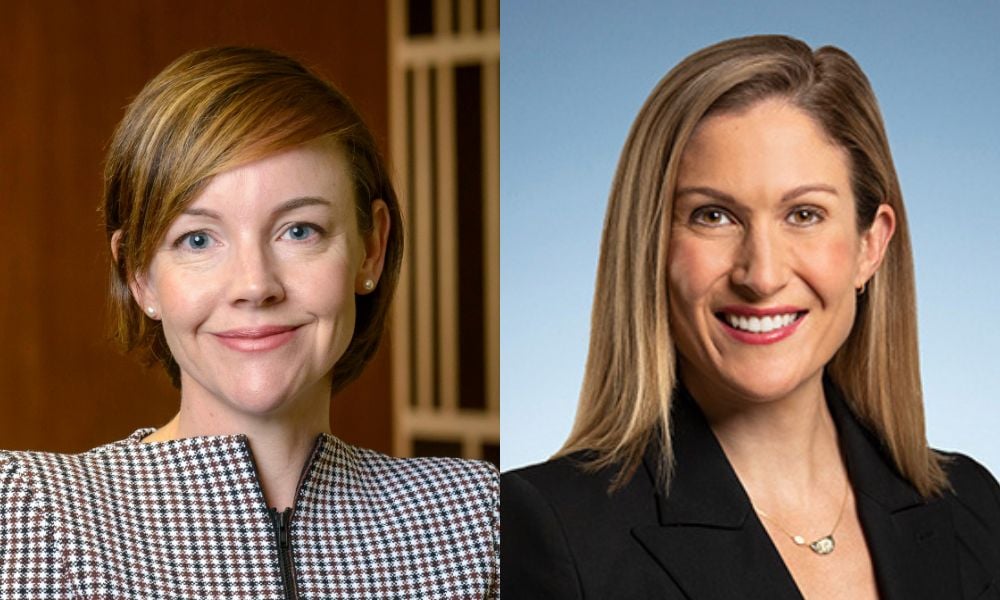
Law firm partners Eve Thomson and Marlia Saunders on Camille Vasquez's powerhouse performance

The court bout between Johnny Depp and Amber Heard generated much controversy and buzz in mainstream media for the two Hollywood stars involved. But one unexpected superstar emerging from the highly publicised, six-week defamation trial was lawyer Camille Vasquez, who represented Depp as part of BigLaw firm Brown Rudnick alongside partner Ben Chew.
Shortly after the trial concluded with Depp being awarded a total of US$15m in damages by a jury, Brown Rudnick announced that Vasquez was being promoted from associate to partner. Thomson Geer partner Marlia Saunders commended Vasquez’s standout performance in court, which has likely become an inspiration for young women and girls to go into the law.
“[Vasquez] came across as being very confident, quick-witted and polished, and that meant she really stood out when compared to Heard's legal team,” Saunders told Australasian Lawyer.
“It's a good thing if more women are encouraged to become advocates – in Australia, women are still hugely unrepresented at the bar, particularly amongst senior counsel.”
Johnson Winter & Slattery’s Eve Thomson, who herself is slated to ascend to the firm’s partnership on 1 July, added that Vasquez’s recognition and elevation due to Depp vs. Heard was cause for celebration.
“I love to see women being recognised and elevated in the law. There is still a lot of work to be done to achieve equal numbers at partner level across the legal industry, so all appointments are to be celebrated,” Thomson said.
“It’s also great to see a female lawyer succeeding so publicly. This will hopefully put the last nail in the coffin of any lasting stereotypes as to what an effective advocate looks like. Thankfully, in Australia we have had a number of talented female lawyers and counsel leading the way for many years, although I don’t know that we’ll be seeing Netflix series based on their lives any time soon!”
While Vasquez and the rest of Depp’s legal team won for the actor at the Fairfax County Circuit Court, Thomson does anticipate another storm brewing for the appeal.
“In terms of the impact of the [Depp vs. Heard] trial on defamation law in the US, only time will tell. Any appeal will likely draw out any substantive questions of law at play. It will be interesting to have a heightened legal focus turned on the razzle dazzle of the trial,” she told Australasian Lawyer.
“I’m no expert in US law, but any jury is something of a black box, so it’s likely that any legal precedent will come out of the appeal judgment. I would expect that issues related to the manner in which the trial was conducted, the evidence permitted before the jury, and any directions given to the jury, will be front and centre.”
Saunders said that while she was not surprised at the outcome of the trial given the way it was conducted, she questioned the fairness of the process and noted that “interesting precedents” could be set in the event of an appeal.
“A lot of the evidence heard by the jury had not been admissible in earlier defamation proceedings in the UK in 2020 where a judge found against Depp, and would not have been admissible in an Australian court,” she pointed out, adding that malice was “generally very difficult to prove” in Australia.
“The issue with a jury trial is that you only get a verdict at the end, not a reasoned judgment which explains why certain decisions were reached which can be used in subsequent cases. Interestingly though, the jurors in the US can now be interviewed by Depp's and Heard's legal teams to ask them why they reached their decision. This simply could not happen in Australia.”
Thus, one important takeaway for Saunders in relation to the case was to “try to shut down any evidence sought to be admitted which is irrelevant to the actual matters in issue, but which would have the effect of undermining a witness and subjecting them to public scrutiny.”
“We've seen a number of cases in Australia recently where, either following a trial or an appeal, there has been a determination that no defamatory meanings were conveyed by a publication. That's a lot of legal costs and court resources wasted in circumstances were the publication wasn't even defamatory,” she explained.
“This was also a key issue in the Depp case. I think that these types of threshold issues should be determined early in the proceedings, before unnecessary time and money is spent on preparing substantive defences.”
Despite the attention on Depp vs. Heard, neither Saunders nor Thomson believed that the outcome would impact defamation law in Australia. However, the ruling is expected to leave a less conspicuous mark.
“The most likely impact will be more subtle. It may be seen in a reduced media appetite to tell stories involving allegations of domestic violence, or more trepidation from survivors coming forward to tell their stories. Some stories could end up not being told publicly at all,” Thomson said.
For Thomson, a valuable takeaway from the case was the need to take a “holistic approach to managing [a] client’s contentious matters.”
“We have seen from a number of high-profile defamation cases, including here in Australia, that trials can take on lives of their own. What can seem on paper like a confined dispute about a sentence or two can become a much bigger animal,” Thomson said.
“Clients need to be advised early as to all the risks associated with their position, ideally from a legal, commercial, and reputational perspective, even in conjunction with other advisers if necessary.”